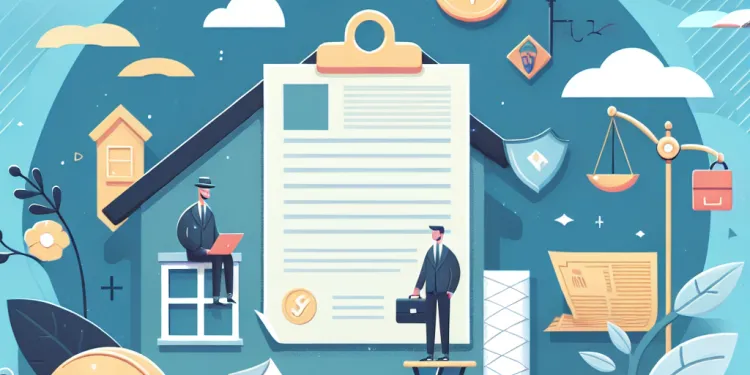
Find Help
More Items From Ergsy search
-

Navigating Personal Injury Claims: What You Need to Know Post-2023
Relevance: 100%
-

Can you claim compensation for whiplash injuries?
Relevance: 30%
-

Is there a deadline for making a claim?
Relevance: 26%
-

Is whiplash a serious injury?
Relevance: 26%
-

Advice on sports injuries
Relevance: 25%
-

Can chiropractors help with sports injuries?
Relevance: 23%
-

Who should I contact to initiate my claim?
Relevance: 23%
-

Do mixed exercises help in preventing injuries?
Relevance: 22%
-
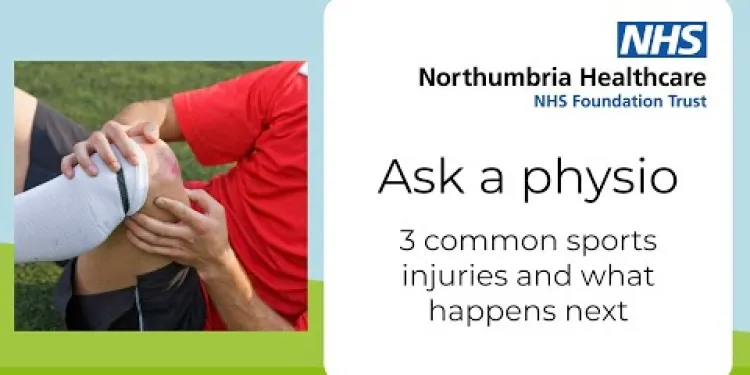
Ask a physio: 3 common sports injuries and what happens next
Relevance: 21%
-
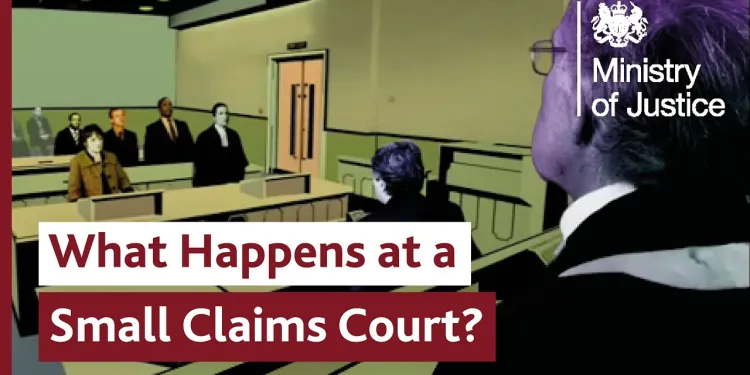
What Happens at Small Claims Court? Making a Court Claim for Money
Relevance: 21%
-
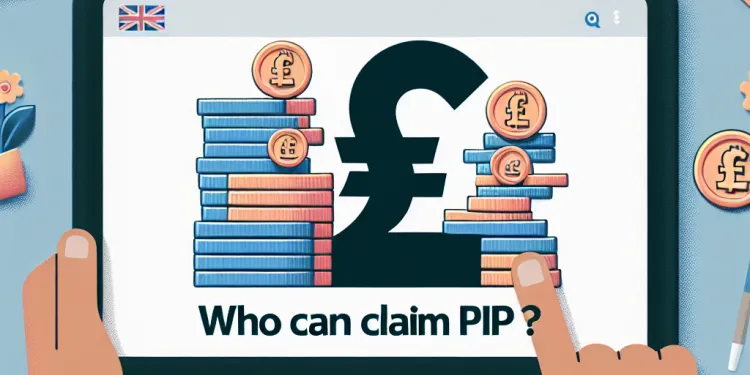
Who can claim PIP?
Relevance: 20%
-

An introduction to claiming asylum in the UK
Relevance: 20%
-
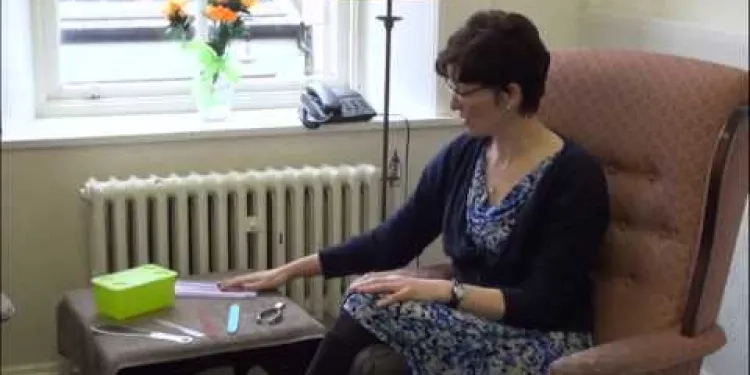
Podiatrist Personal Footcare
Relevance: 20%
-

Who can claim PIP?
Relevance: 20%
-

Is there a minimum claim amount?
Relevance: 19%
-

Can I make a claim online?
Relevance: 19%
-

Can I claim the Winter Fuel Payment on behalf of someone else?
Relevance: 19%
-
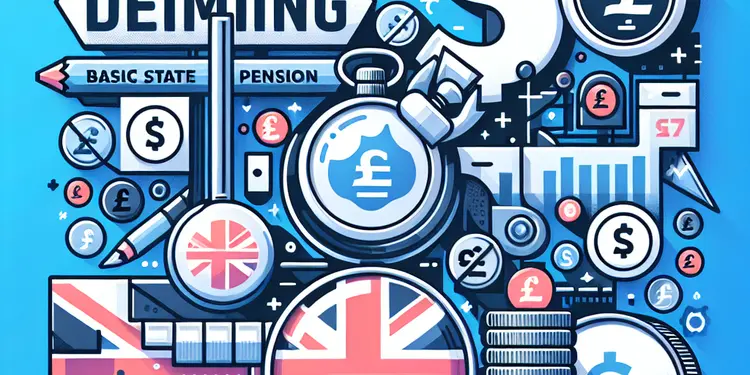
How do I claim the basic State Pension?
Relevance: 19%
-

What information do I need to provide to claim my refund?
Relevance: 18%
-

What is Personal Independence Payment (PIP)?
Relevance: 18%
-

What should I do if my claim is rejected?
Relevance: 18%
-
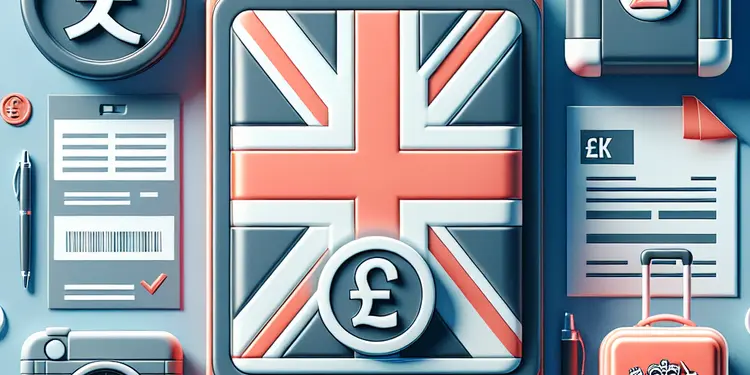
How do I file a claim with travel insurance?
Relevance: 18%
-

How do I claim my tax refund from HMRC?
Relevance: 18%
-

What is Personal Independence Payment (PIP) & Attendance Allowance?
Relevance: 18%
-

Can I claim expenses as a gig worker?
Relevance: 18%
-
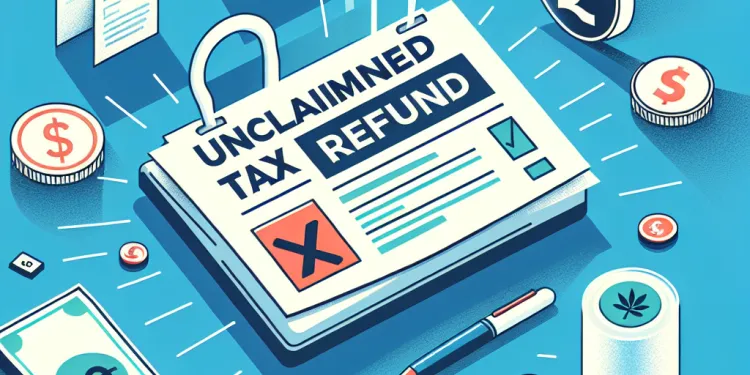
What happens if I do not claim my tax refund?
Relevance: 18%
-

Can I make a joint claim with other users?
Relevance: 18%
-
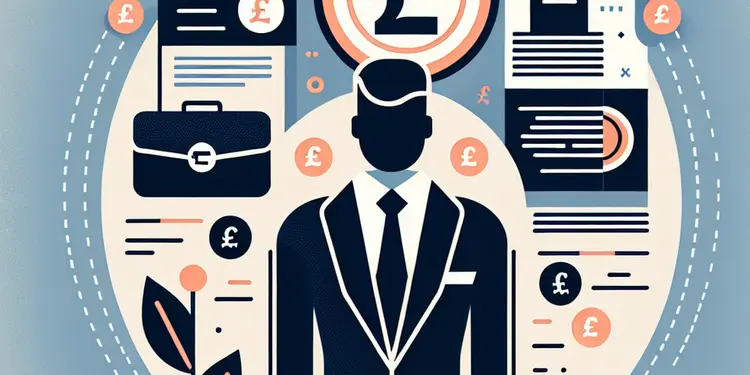
What are the elements of a professional negligence claim?
Relevance: 18%
-

Is there a deadline to claim the Winter Fuel Payment?
Relevance: 18%
-
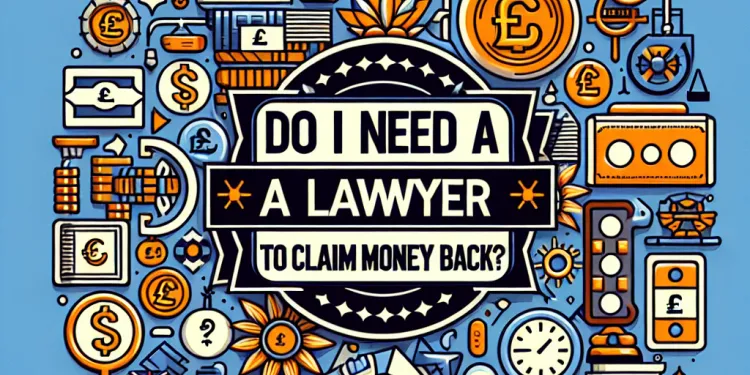
Do I need a lawyer to claim money back?
Relevance: 17%
-

What if I have moved house since the claim period?
Relevance: 17%
-
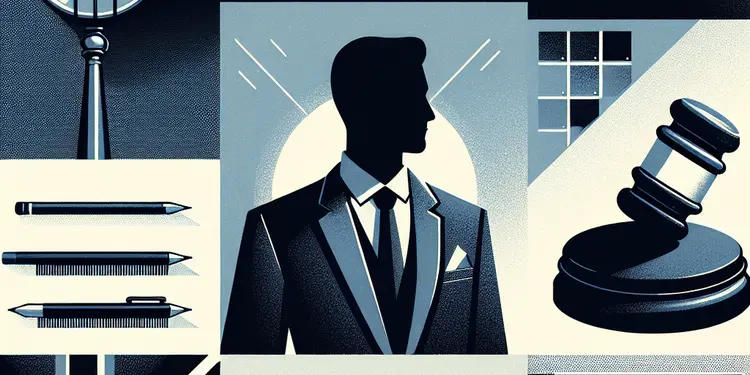
What is the impact of a professional negligence claim on a professional's career?
Relevance: 17%
-

How long do I have to file a professional negligence claim?
Relevance: 17%
-

What evidence do I need to support my claim?
Relevance: 17%
-

Can Chikungunya be transmitted from person to person?
Relevance: 17%
-

What is the role of a water regulator in my claim?
Relevance: 17%
-

Are there any fees to claim money back?
Relevance: 17%
-

What should I do if my holiday insurance claim is denied?
Relevance: 16%
-

Are professionals insured against negligence claims?
Relevance: 16%
-

How can professionals avoid negligence claims?
Relevance: 16%
Navigating Personal Injury Claims: What You Need to Know Post-2023
Understanding the Basics of Personal Injury Claims
Personal injury claims arise when an individual suffers harm due to someone else's negligence or intentional actions. In the United Kingdom, the process for making such claims has undergone significant changes post-2023. These adjustments seek to streamline the process, offering clearer guidelines for both claimants and defendants.
Key Changes Post-2023
One of the most notable changes is the introduction of the Official Injury Claim portal, which allows individuals to manage lower-value claims independently, without the need for legal representation. This platform is designed to process claims more efficiently, reducing costs and timelines. Moreover, the update has instituted new compensation tariffs for various injury types, further simplifying the estimation of potential settlements.
Eligibility and Documentation
To start a personal injury claim, claimants must demonstrate that the injury resulted from another party's negligence and that this negligence caused measurable harm. Post-2023, the required documentation includes medical reports, witness statements, and any other pertinent evidence to support the claim. This comprehensive compilation of documents is crucial for establishing the extent of the injury and the circumstances under which it occurred.
Statute of Limitations
The statute of limitations for personal injury claims in the UK remains at three years from the date of the injury or from when the claimant first became aware of the injury. This timeframe necessitates prompt action to ensure that claims are filed within the allowable period. Exceptions may apply in cases involving minors or individuals with mental incapacity, where extensions to the statute of limitations can be granted.
Legal Representation and Costs
While lower-value claims can be handled independently through the Official Injury Claim portal, more complex cases may still benefit from legal representation. Many law firms operate on a no-win, no-fee basis, which can provide financial reassurance to claimants who may be wary of upfront legal costs. However, it's important to understand the terms of such arrangements and potential deductions from awarded compensation.
Settling a Claim
Upon submitting a claim, the defendant has a specified period to respond, typically 21 days to acknowledge receipt and up to three months for investigation. Settlement negotiations can then proceed, which may result in an agreed compensation without the need for court involvement. Should negotiations fail, the matter may be escalated to the courts for a judicial settlement.
Conclusion
Navigating personal injury claims post-2023 in the United Kingdom requires an understanding of the new processes and guidelines. From utilizing the Official Injury Claim portal for simpler cases to securing legal representation for more complex claims, staying informed about your options and rights is crucial for a successful and timely settlement.
Navigating Personal Injury Claims: What You Need to Know Post-2023
In the UK, the landscape for personal injury claims has undergone significant changes post-2023. Understanding these nuances is critical if you are considering pursuing compensation for an accident or injury. This guide provides key insights to navigate the process more effectively.
Understanding Recent Legal Changes
Post-2023, the UK has introduced reforms aimed at expediting claims and reducing frivolous lawsuits. The introduction of digital claim platforms has streamlined the process, but it requires claimants to adhere to stricter timelines and protocols. It's crucial to familiarize yourself with the current guidelines or consult a solicitor experienced in personal injury to ensure compliance.
The Impact of Brexit on Personal Injury Claims
Brexit has contributed to the evolution of regulations surrounding personal injury claims, particularly concerning jurisdiction and applicability of certain EU laws. Cross-border claims and issues such as enforcement of judgments now require a nuanced approach. Claimants should seek expert legal advice to navigate these complex areas.
The Role of Insurance Companies
Insurance companies are playing an increasingly pivotal role in personal injury claims. Post-2023, there has been a shift towards resolving claims directly with insurers, often through mediation or arbitration. Understanding your insurance policy and rights can empower you to negotiate better settlements.
Calculating Compensation
The assessment of damages has also seen adjustments. Compensation is now more closely aligned with guidelines provided by the Judicial College. Claimants should be aware that factors such as comparative negligence and the presence of pre-existing conditions could significantly influence the amount awarded.
Engaging Legal Representation
While it is possible to handle minor claims independently, complex cases benefit from professional legal representation. Solicitors specializing in personal injury law can provide invaluable assistance in gathering evidence, negotiating with insurers, and, if necessary, litigating the case. They can also help decipher the intricacies of the latest legal provisions impacting your claim.
Conclusion
Successfully navigating a personal injury claim in the UK post-2023 requires staying informed about legal reforms and leveraging the expertise of professionals within the sector. By understanding the current framework and potential pitfalls, claimants can improve their chances of securing fair compensation.
Navigating Personal Injury Claims: What You Need to Know Post-2023
Understanding Recent Changes in the UK Legal Landscape
Post-2023, the personal injury claims process in the UK has witnessed significant updates aimed at streamlining procedures and protecting both claimants and defendants. Key reforms include adjustments to the Whiplash Injury Regulations and modification in the Civil Liability Act, impacting how claims are processed and compensated. It is crucial to stay informed about these changes to effectively navigate your claim.
Initiating a Claim: Crucial Steps
When initiating a personal injury claim, the first step is to gather all pertinent evidence. This includes medical records, witness testimonies, and any other documentation that supports your case. The new reforms emphasize digital submissions, making it vital to ensure documents are accurately scanned and submitted through approved online channels.
Finding the Right Legal Representation
Choosing a solicitor specialized in personal injury claims is more crucial than ever due to the complexity of new legal adjustments. A proficient solicitor will guide you through the updated legal framework and ensure your claim adheres to recent statutory requirements. Look for solicitors with a strong track record and familiarity with technology-driven claim processing.
Understanding Compensation and Settlement Processes
Post-2023 changes continue to influence compensation calculations. With adjustments in the guidelines of the Judicial College for injury valuations and shifts in how settlements are negotiated, understanding your potential compensation entitlements has become more pivotal. It is advisable to seek comprehensive legal advice to ascertain your claim’s worth and navigate any offers by the defendant efficiently.
Conclusion
Navigating personal injury claims in the UK post-2023 necessitates a thorough understanding of recent legal changes and procedural updates. Engaging knowledgeable legal assistance and staying informed about the latest guidelines is essential to ensure a successful claim process. By following these steps, you can effectively manage your injury claim in the evolving legal environment.
Personal Injury Claims: Important Information for After 2023
What Are Personal Injury Claims?
Personal injury claims happen when someone gets hurt because another person was careless or did something on purpose. In the UK, the rules for making these claims changed after 2023 to make it easier for people to understand what to do.
What Changed After 2023?
The biggest change is a new online tool called the Official Injury Claim portal. People can use it to handle smaller claims by themselves, without needing a lawyer. This tool makes the process faster and cheaper. There are also new rules that help people know how much money they might get for different injuries.
Who Can Make a Claim and What Do You Need?
To make a claim, you need to show that another person caused your injury. After 2023, you need to have things like medical reports and statements from people who saw what happened. These help prove your case.
Time Limits for Making a Claim
You have three years from the day you got hurt to make a claim. This means you need to act quickly. Sometimes, if the person hurt is a child or has trouble thinking clearly, more time might be given.
Do You Need a Lawyer?
For simple claims, you can use the Official Injury Claim portal on your own. But if your case is complicated, a lawyer might be helpful. Some lawyers work on a "no-win, no-fee" basis, so you don't pay them unless you win your case.
How Do You Settle a Claim?
After you make a claim, the person who hurt you has about 21 days to say they got it and up to three months to look into it. You might agree to a settlement without going to court. If not, a judge may need to decide.
Summary
Understanding how personal injury claims work after 2023 is important. Whether you use the online portal or get a lawyer, knowing your choices helps you get a fair settlement quickly.
Getting Help with Injury Claims: What to Know After 2023
If you get hurt and want to ask for money to help, things have changed in the UK. This guide will help you understand what to do.
New Rules in Law
Since 2023, new rules make it quicker to make a claim. You must follow the new steps carefully. It’s helpful to talk to a lawyer who knows about injury claims.
How Brexit Affected Claims
Brexit changed some rules about injury claims. If your claim involves different countries, it can be tricky. It’s good to speak to a legal expert to help you.
Insurance Companies' Role
Insurance companies are more involved in claims now. They try to solve things quickly. Knowing your insurance rights helps you get a good deal.
How Compensation is Decided
The way money is given for injuries has changed. It's based on new rules. Things like previous injuries might affect how much you get.
When to Get a Lawyer
You can do small claims alone, but hard cases need a lawyer. Lawyers help gather proof and talk to insurance companies. They know the new rules well.
Conclusion
To get help after an injury in the UK now, you need to know the new rules. Experts can help you understand and get fair money for your claim.
Navigating Personal Injury Claims: What You Need to Know Post-2023
Understanding Recent Changes in the UK Legal Landscape
In 2023 and after, there are new rules for personal injury claims in the UK. These changes help make the process smoother for everyone. Important changes include new Whiplash Injury Rules and changes to the Civil Liability Act. This affects how claims are handled and what compensation you might get. It's important to know about these changes to handle your claim well.
Starting a Claim: Important Steps
To start a personal injury claim, first, collect all important evidence. This means getting medical records, statements from witnesses, and any other papers that prove your case. The new rules now prefer using online submissions, so you should scan documents correctly and send them through approved online systems.
Finding the Right Legal Help
Picking a lawyer who knows about personal injury claims is now more important because of the new changes. A good lawyer helps you understand the new rules and makes sure your claim fits the latest requirements. Find a lawyer with experience and who knows how to use technology well for claims.
Compensation and Settlements: What to Know
The rules from 2023 also change how compensation is worked out. There are new guidelines for how injuries are valued and how settlements are discussed. Knowing what you might get is important. It’s a good idea to get legal advice to understand how much your claim could be worth and to handle any offers you get from the other side.
Conclusion
Handling personal injury claims in the UK after 2023 means you need to know about the new rules and processes. Getting help from a good lawyer and keeping up with new rules is important for a successful claim. By following these steps, you can manage your claim in the changing legal world.
Frequently Asked Questions
What is the first step I should take if I've been injured in an accident?
If you've been injured in an accident, the first step is to ensure your safety and seek medical attention. Once you are safe, document the scene and gather evidence such as photographs and witness details if possible.
How do I know if I am eligible to make a personal injury claim?
You may be eligible to make a personal injury claim if you have been injured due to someone else's negligence. Generally, claims need to be made within three years of the incident.
Can I make a claim for an accident that occurred at work?
Yes, if you are injured at work due to negligence by your employer or a co-worker, you may be able to make a personal injury claim.
What does 'no win, no fee' mean in personal injury claims?
A 'no win, no fee' arrangement means that if your claim is unsuccessful, you will not have to pay your solicitor’s fees. If you win, the fees will typically be recovered from the compensation awarded.
How long does it usually take to settle a personal injury claim?
The duration to settle a personal injury claim can vary widely. It can take anywhere from a few months to several years, depending on the complexity of the case and the willingness of the parties to negotiate.
Do I need a solicitor to file a personal injury claim?
While it is not a legal requirement to have a solicitor, it is highly recommended to use one. A solicitor can help navigate the legal process, gather evidence, negotiate with insurance companies, and ensure you receive fair compensation.
Can I claim for psychological injuries in a personal injury claim?
Yes, psychological injuries such as post-traumatic stress disorder (PTSD) can be included in a personal injury claim, provided they are supported by medical evidence.
What if the other party denies liability for the accident?
If the other party denies liability, your solicitor can gather evidence to support your claim and may pursue the claim through the courts if necessary.
What factors affect the amount of compensation I might receive?
Compensation amounts depend on factors such as the severity of the injury, impact on your life, lost earnings, and any ongoing medical expenses.
What should I do if the insurance company offers me a settlement?
Before accepting any settlement offers from an insurance company, it’s wise to consult with a solicitor to ensure it reflects the true extent of your damages and losses.
Are there any time limits for making a personal injury claim?
In the UK, the general rule is that you have three years from the date of the accident or the date you became aware of the injury to file a personal injury claim.
Can I still make a claim if the accident was partially my fault?
Yes, you can still make a claim under the principle of 'contributory negligence', although the compensation may be reduced to reflect your share of the responsibility.
What evidence is needed to support a personal injury claim?
Useful evidence can include medical reports, accident scene photos, witness statements, and any relevant records like CCTV footage or police reports.
What costs are associated with making a personal injury claim?
Under a 'no win, no fee' agreement, you usually do not bear the costs upfront. However, if you win, you may have to pay a success fee, which is a percentage of the compensation award.
How does making a personal injury claim affect my employment status?
Making a personal injury claim should not affect your employment status. It is illegal for an employer to dismiss or treat you unfairly because you are making a claim.
What should I do first if I get hurt in an accident?
If you get hurt in an accident, the first thing to do is make sure you are safe. Then get help from a doctor. After you are okay, take pictures of the place where it happened. Try to get the names and phone numbers of anyone who saw what happened.
Can I make a personal injury claim?
If you got hurt and it was not your fault, you might be able to ask for help. This is called making a personal injury claim.
Here’s how you can find out if you can make a claim:
- Did the accident happen in the last 3 years?
- Was someone else at fault for your injury?
- Did you have to see a doctor because of the accident?
If you answered "yes" to these questions, you might be able to make a claim.
It can be a good idea to talk to an expert, like a lawyer, for help. They can tell you what to do next.
You might be able to ask for money if you got hurt because someone else made a mistake. Usually, you have to ask for this money within three years after you got hurt.
Can I ask for money if I got hurt at work?
If you get hurt at work because your boss or someone you work with made a mistake, you might be able to ask for help by making a personal injury claim.
What does 'no win, no fee' mean if you get hurt and want to ask for money?
'No win, no fee' means you do not pay any money at the start. If you win your case and get money, then you pay the lawyer. If you do not win, you do not have to pay.
Here are some ways to help you understand:
- Ask someone to help you: You can ask a family member or friend to explain it to you.
- Use pictures: Look for pictures or videos online that explain what 'no win, no fee' means.
- Ask questions: If you talk to a lawyer, ask them to explain it in a simple way.
Remember, 'no win, no fee' helps people get help from lawyers without paying money first.
A 'no win, no fee' deal means you don't pay your lawyer if you lose your case. If you win, the lawyer's fee usually comes from the money you get.
How long does it take to finish a personal injury claim?
A personal injury claim is when you ask for money because you got hurt. It can take some time to get the money. Here is how long it might take:
- Quick claims: These can be done in a few months. This happens when things are simple.
- Longer claims: These can take a year or more. This happens when things are more complicated.
If you need help, you can use tools like text-to-speech software or ask someone you trust to explain it to you.
It can take different amounts of time to finish a personal injury claim. Sometimes it is quick and takes a few months. Other times, it takes a long time and can be many years. It depends on how complicated the situation is and if people can agree easily.
Do I need a lawyer to make a personal injury claim?
If you get hurt and it is someone else's fault, you might want to ask for money. This is called a personal injury claim. You might wonder if you need a lawyer to help you.
A lawyer is a person who helps you understand the law. They can tell you what to do. A lawyer can help with tricky paperwork and talk to other people for you. This can make things easier.
But you do not have to have a lawyer. You can try to do it by yourself. If you choose to do it alone, these things can help:
- Ask someone you trust to read things with you.
- Use simple words and take one step at a time.
- Find websites or books that explain what to do in easy words.
Remember, you can always ask a lawyer if you feel unsure.
You do not have to use a lawyer, but it is a very good idea. A lawyer can help you understand the legal steps, collect proof, talk to insurance companies, and make sure you get fair money for your troubles.
Can I ask for money if I get hurt feelings from an accident?
Yes, you can ask for help if you get hurt in your mind, like feeling very scared after something bad happened (this is called PTSD). But you need a doctor to say that it is true.
What if the other person says the accident was not their fault?
If the other person says the accident was not their fault, here is what you can do:
- Stay calm and listen to what they say.
- Collect information about the accident, like taking photos and getting witness names.
- Talk to your insurance company for help.
- Write down everything you remember about the accident.
These steps can help you handle the situation better.
If the other side says they are not at fault, your lawyer can help. They will collect proof to show your claim is right. If needed, they can take the claim to court.
What things change how much money I can get?
The money you get will depend on things like how bad your injury is, how it changes your life, if you miss work and lose money, and any medical bills you still have to pay.
What do I do if the insurance company wants to pay me money?
Before you say "yes" to any offers from an insurance company, it's good to talk to a lawyer. They can help make sure the offer is fair and covers everything you lost or broke.
Is there a time limit to claim for a personal injury?
In the UK, if you have an accident, you have 3 years to tell someone about it and ask for help. This time starts from the day the accident happened or when you found out you were hurt.
Can I ask for money if the accident was a little bit my fault?
If you had an accident, you might still ask for money even if it was a little bit your fault. It's a good idea to talk to someone who knows about accidents and rules. They can help you understand what to do.
Here are some things that can help you:
- Ask a grown-up or trusted person to help you.
- Write down what happened in the accident.
- Take pictures or draw what you remember about the accident.
- Talk to a lawyer who can explain things in a simple way.
This can help you know what to do next!
Yes, you can still ask for money (make a claim) even if you helped cause the problem. This is called 'contributory negligence'. But, the amount of money you get might be less because you were partly responsible.
Here are some things you can do to help understand and remember this:
- Ask a friend or family member to read it with you.
- Use a text-to-speech tool to hear the text spoken out loud.
- Highlight or underline important words.
- Draw a picture of what 'contributory negligence' means to help remember it.
What do you need to show for a personal injury claim?
If you get hurt and it isn't your fault, you might make a claim. To do this, you need some proof. Here is what you need:
- Photos: Take pictures of your injury and where it happened.
- Witnesses: Ask people who saw it happen to tell what they saw.
- Doctor's Report: Go to the doctor and get a note saying what your injuries are.
- Bills and Receipts: Keep any bills or receipts from the doctor or hospital.
Ask a grown-up or a helper if you need more help with this.
Helpful evidence can be things like doctor reports, photos of the accident, what people saw, and important records like videos from security cameras or reports from the police.
What does it cost to make a personal injury claim?
When you make a personal injury claim, there are costs you might have to pay. Here is what you need to know:
- Legal Fees: You might need to pay a lawyer to help with your claim.
- Court Fees: If your claim goes to court, there could be costs to pay there.
- Medical Reports: You may need to pay for doctor's reports to show your injury.
A good way to manage these costs is to ask your lawyer about "no-win, no-fee" agreements. This means you only pay if you win your case.
If you find reading hard, you can ask someone to help you read this. You can also listen to the information if you have a way to make the text into speech.
'No win, no fee' means you don't pay at the start. If you win, you might have to pay some money from what you get. This is called a success fee.
Will making a personal injury claim change my job?
If you get hurt and want to make a claim, it should not change your job. It is against the law for your boss to fire you or treat you badly because you are making a claim.
Useful Links
This website offers general information and is not a substitute for professional advice.
Always seek guidance from qualified professionals.
If you have any medical concerns or need urgent help, contact a healthcare professional or emergency services immediately.
- Ergsy carfully checks the information in the videos we provide here.
- Videos shown by Youtube after a video has completed, have NOT been reviewed by ERGSY.
- To view, click the arrow in centre of video.
- Most of the videos you find here will have subtitles and/or closed captions available.
- You may need to turn these on, and choose your preferred language.
- Go to the video you'd like to watch.
- If closed captions (CC) are available, settings will be visible on the bottom right of the video player.
- To turn on Captions, click settings .
- To turn off Captions, click settings again.
More Items From Ergsy search
-

Navigating Personal Injury Claims: What You Need to Know Post-2023
Relevance: 100%
-

Can you claim compensation for whiplash injuries?
Relevance: 30%
-

Is there a deadline for making a claim?
Relevance: 26%
-

Is whiplash a serious injury?
Relevance: 26%
-

Advice on sports injuries
Relevance: 25%
-

Can chiropractors help with sports injuries?
Relevance: 23%
-

Who should I contact to initiate my claim?
Relevance: 23%
-

Do mixed exercises help in preventing injuries?
Relevance: 22%
-

Ask a physio: 3 common sports injuries and what happens next
Relevance: 21%
-

What Happens at Small Claims Court? Making a Court Claim for Money
Relevance: 21%
-

Who can claim PIP?
Relevance: 20%
-

An introduction to claiming asylum in the UK
Relevance: 20%
-

Podiatrist Personal Footcare
Relevance: 20%
-

Who can claim PIP?
Relevance: 20%
-

Is there a minimum claim amount?
Relevance: 19%
-

Can I make a claim online?
Relevance: 19%
-

Can I claim the Winter Fuel Payment on behalf of someone else?
Relevance: 19%
-

How do I claim the basic State Pension?
Relevance: 19%
-

What information do I need to provide to claim my refund?
Relevance: 18%
-

What is Personal Independence Payment (PIP)?
Relevance: 18%
-

What should I do if my claim is rejected?
Relevance: 18%
-

How do I file a claim with travel insurance?
Relevance: 18%
-

How do I claim my tax refund from HMRC?
Relevance: 18%
-

What is Personal Independence Payment (PIP) & Attendance Allowance?
Relevance: 18%
-

Can I claim expenses as a gig worker?
Relevance: 18%
-

What happens if I do not claim my tax refund?
Relevance: 18%
-

Can I make a joint claim with other users?
Relevance: 18%
-

What are the elements of a professional negligence claim?
Relevance: 18%
-

Is there a deadline to claim the Winter Fuel Payment?
Relevance: 18%
-

Do I need a lawyer to claim money back?
Relevance: 17%
-

What if I have moved house since the claim period?
Relevance: 17%
-

What is the impact of a professional negligence claim on a professional's career?
Relevance: 17%
-

How long do I have to file a professional negligence claim?
Relevance: 17%
-

What evidence do I need to support my claim?
Relevance: 17%
-

Can Chikungunya be transmitted from person to person?
Relevance: 17%
-

What is the role of a water regulator in my claim?
Relevance: 17%
-

Are there any fees to claim money back?
Relevance: 17%
-

What should I do if my holiday insurance claim is denied?
Relevance: 16%
-

Are professionals insured against negligence claims?
Relevance: 16%
-

How can professionals avoid negligence claims?
Relevance: 16%


